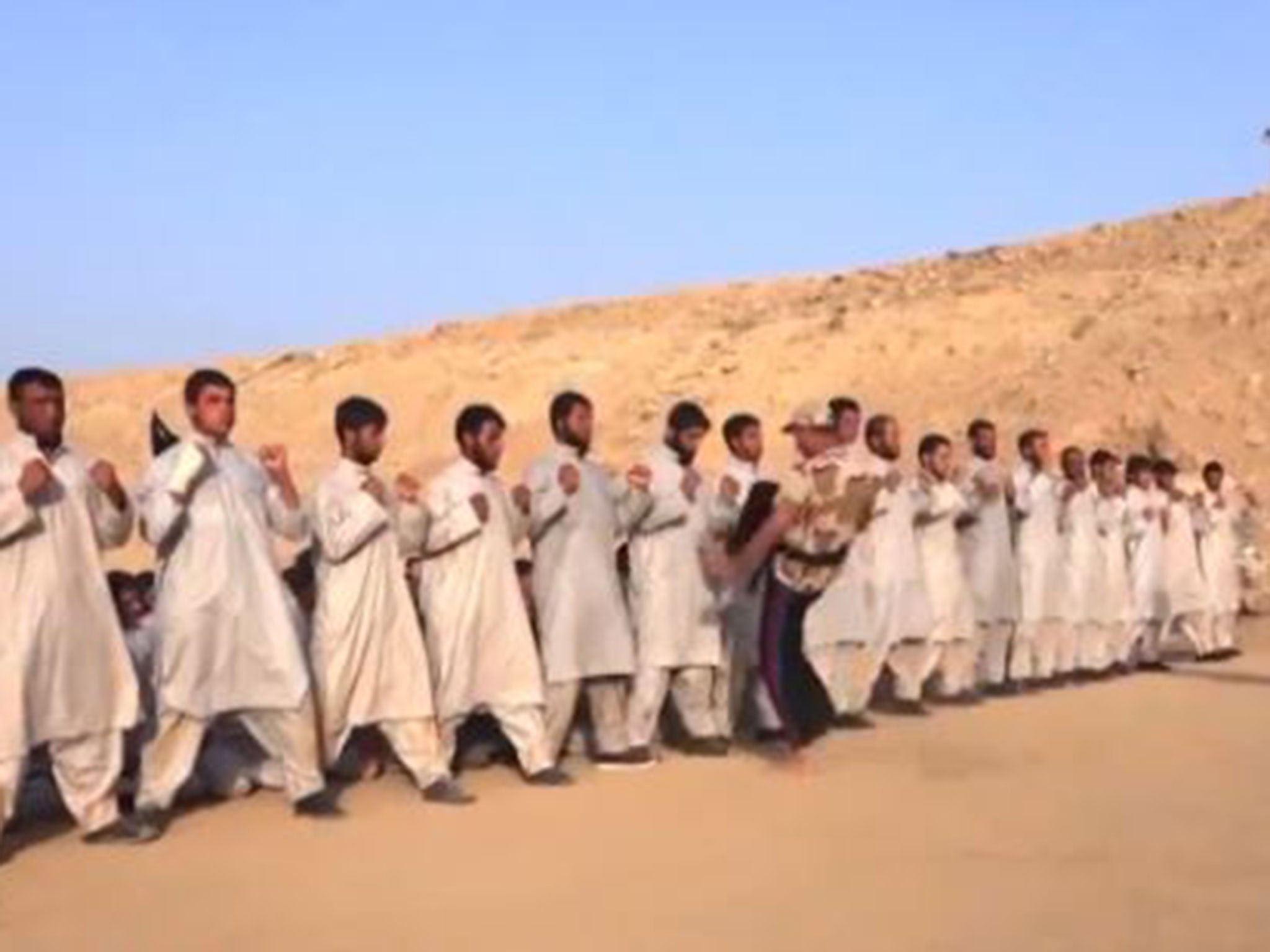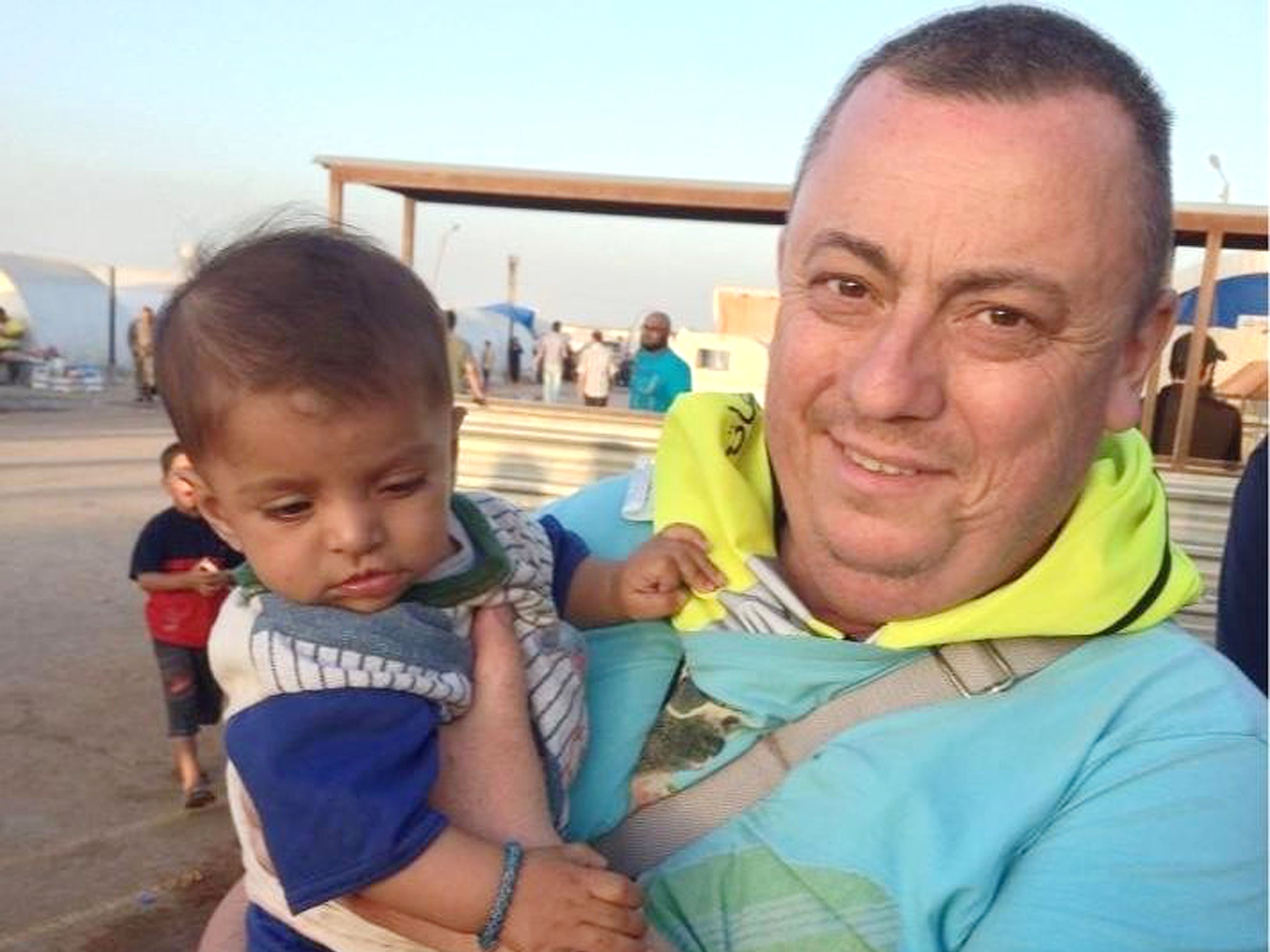Isis defector speaks on why he left militant group after six months fighting in Syria
Abu Ibrahim fled because he became disillusioned and missed his family

Your support helps us to tell the story
From reproductive rights to climate change to Big Tech, The Independent is on the ground when the story is developing. Whether it's investigating the financials of Elon Musk's pro-Trump PAC or producing our latest documentary, 'The A Word', which shines a light on the American women fighting for reproductive rights, we know how important it is to parse out the facts from the messaging.
At such a critical moment in US history, we need reporters on the ground. Your donation allows us to keep sending journalists to speak to both sides of the story.
The Independent is trusted by Americans across the entire political spectrum. And unlike many other quality news outlets, we choose not to lock Americans out of our reporting and analysis with paywalls. We believe quality journalism should be available to everyone, paid for by those who can afford it.
Your support makes all the difference.A former jihadist who ran away from Isis has spoken about life under the group’s brutal rule in Syria and why he fled.
The man, who goes under the name of Abu Ibrahim, spoke to US television network CBS while trying to get home to the West.
He spent six months fighting with Isis, witnessing their trademark brutality including crucifixions and the stoning to death of a couple accused of adultery.
“A lot of people when they come, they have a lot of enthusiasm about what they've seen online or what they've seen on YouTube,” Mr Ibrahim said. “They see it as something that’s a lot grander than what the reality is.”
He admitted Isis’ brutal so-called justice system was “harsh” but views it as a faithful interpretation of Sharia law.
“While seeing someone die is not something anyone would probably want to see, having the actual Sharia established is what many Muslims look forward to,” Mr Ibrahim added.
But for him, along with many other Isis followers, the beheadings of foreign aid workers and journalists including David Haines, Alan Henning and most recently two Japanese hostages, was a step too far.
Mr Ibrahim views non-combatants as “innocent” in the conflict but Isis has attempted to justify their murders in gory propaganda videos as revenge for Western intervention in the region and continuing air strikes against their militants.
Life for western jihadists under Isis rule is almost completely subsided, with food, housing and “the bare necessities” provided, the former fighter told CBS.

His allowance of approximately £33 a month rose to £66 in winter for the purchase of warm clothes and household items.
Isis aims to keep its militants, enforcing movement restrictions that Mr Ibrahim said made the experience feel like a “prison”. He fears he will be captured and imprisoned if found on the run.
The group is paranoid about spying and infiltration and executes suspected traitors.

Mr Ibrahim said he became increasingly disillusioned with the group’s tactics, missed his family and felt bored.
“My main reason for leaving was that I felt that I wasn't doing what I had initially come for and that's to help in a humanitarian sense the people of Syria,” he told CBS. “It had become something else.”
He added: “I'll miss the friends I made and the brotherhood, but ISIS itself - no.”

The Muslim convert is one of thousands of men and women who have travelled from the West to wage jihad with Isis in Iraq and Syria.
As well as US-led air strikes against Isis, the group is battling Al Qaeda-affiliated Jabhat al-Nusra, Kurdish forces and the Peshmerga, the Free Syrian Army, Syrian and Iraqi armies, Sunni tribes, Shia militias, and a number of other rebel groups in the region.
There have been rumours of dissent among the unknown number of British jihadists in the group and several have reportedly been killed in fighting.

Professor Peter Neumann, from King’s College London, said he has been contacted by a group of dozens of British militants who want to return to the UK but fear arrest on their return.
The Government has attempted to take a strong stance on the threat of Isis returnees carrying out terror attacks on home soil, vowing to prosecute anyone coming back into the UK for terror offences.
Join our commenting forum
Join thought-provoking conversations, follow other Independent readers and see their replies
Comments